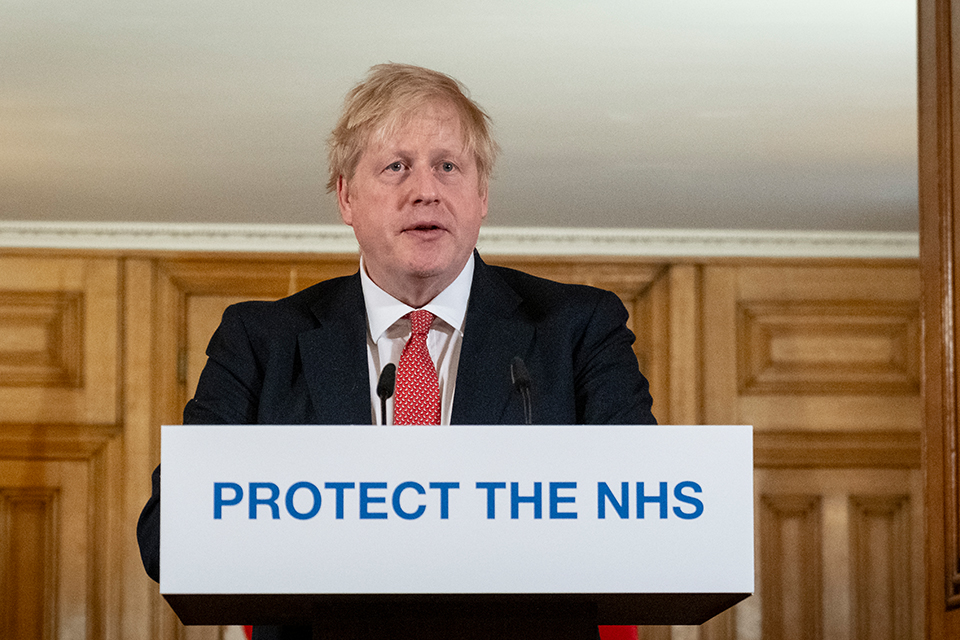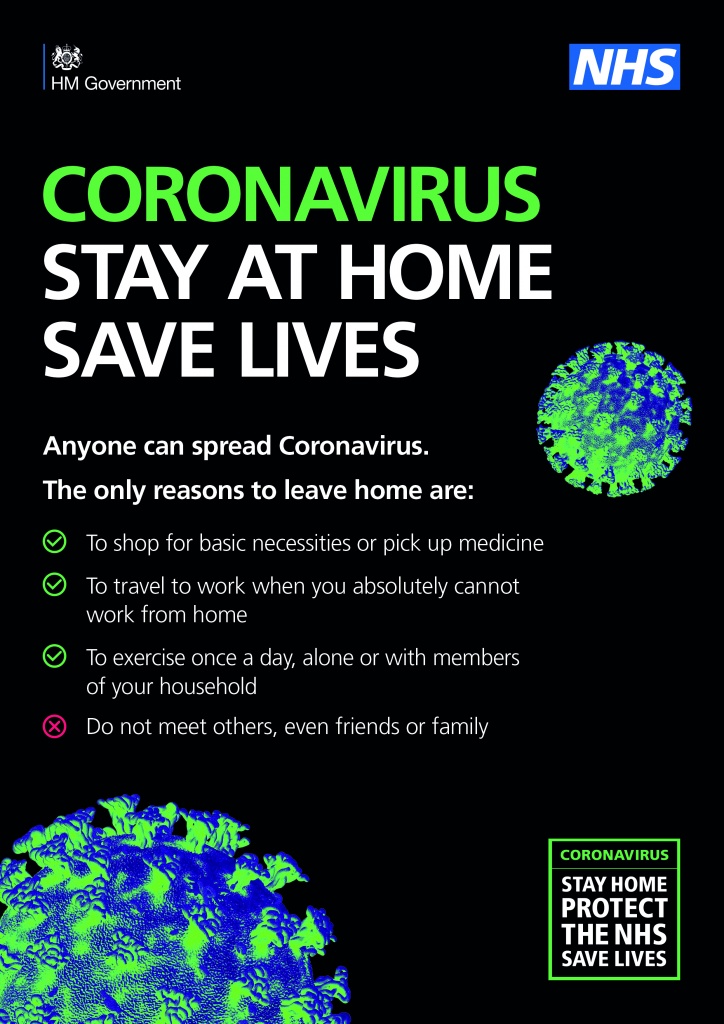
Prime Minister Boris Johnson at the Number 10 daily press conference on 30 April 2020 was joined by Professor Chris Whitty, Chief Medical Officer, and Sir Patrick Vallance, Chief Scientific Advisor for an update on coronavirus.
Boris Johnson said: And I am sorry not to have been part of this trio for so long. I want to thank everybody who has been doing such a good job in my absence and I want to thank the NHS for so much. Including getting me back here and I might add for a much happier hospital visit yesterday.
In a few minutes I am going to hand over to Patrick to update you on the epidemic. But first I am going to set out today’s latest data, 901,905 tests for coronavirus have now been carried out in the UK, including 81,611 tests yesterday.
171,253 people have tested positive, that’s an increase of 6,032 cases since yesterday. 15,043 people are currently in hospital with coronavirus, compared to 15,359 people yesterday.
And sadly, of those tested positive for coronavirus, across all settings, 26,711 have now died. That’s an increase of 674 fatalities since yesterday across all settings. This figure of course includes deaths not just in hospitals.
Across this country, therefore, families every day are continuing to lose loved ones before their time. We grieve for them and with them. But as we grieve we are strengthened in our resolve to defeat this virus.To get this whole country back to health, back on its feet.
And we are determined urgently and in particular to overcome those challenges that in the last few weeks have been so knotty and so infuriating.
I’m not going to minimise the logistical problems we have faced in getting the right protective gear to the right people at the right time, both in the NHS and in care homes or the frustrations that we have experienced in expanding the numbers of tests.
But what I can tell you is that everyone responsible for tackling these problems whether in Government or the NHS, or Public Health England, local authorities. We are throwing everything at it, heart and soul, night and day.
To get it right – and we will get it right and we are making huge progress. And I will not underrate the work and the achievement of those who are dealing with global shortages, in a global pandemic.
They are rising to a challenge we have never seen in our lifetimes. And the same can be said of the entire people of this country Staying in enforced confinement. Not seeing family, not seeing friends or grandchildren. Worrying about their jobs and the future.
And so my message to everyone again today is your effort and your sacrifice is working and has been proved to work. Today the number of Covid hospital admissions is falling. The number of patients in ICU is falling.
We have so far succeeded in the first and most important task we set ourselves as a nation. To avoid the tragedy that engulfed other parts of the world. Because at no stage has our NHS been overwhelmed. No patient went without a ventilator. No patient was deprived of intensive care.
We have five of the seven projected Nightingale wards. And it is thanks to that massive collective effort to shield the NHS that we avoided an uncontrollable and catastrophic epidemic where the reasonable worst case scenario was 500,000 deaths.
And so I can confirm today for the first time that we are past the peak of this disease. We are past the peak and we are on the downward slope. And we have so many reasons to be hopeful for the long term.
The UK is leading international efforts to find a vaccine. Today Oxford University has announced a partnership with Astrazeneca to develop what they believe could soon be a means of inoculating ourselves against this disease.
But until this day comes and I am afraid we cannot say exactly when it may be. We will have to beat this disease by our growing resolve and ingenuity.
So I will be setting out a comprehensive plan next week. To explain how we can get our economy moving, one,
How we can get our children back to school, back into childcare, second, and third how we can travel to work and how we can make life in the workplace safer.
And in short how we can continue to suppress the disease and at the same time re-start the economy.
A huge amount of work has been going-on on that plan and as we produce it we are being guided by the science, and we will try to build the maximum political consensus as we produce it across all parties and across the UK.
But there will be five key tests that we must satisfy before we can put that plan into action.
We must be sure that we can continue to protect the NHS and its ability to cope.
We must see a sustained fall in deaths.
We must be sure that the infection rate is falling.
We must overcome the operational and logistical challenges on testing and PPE.
Fifth, and this is the most important, we must all make sure that the measures we take do not risk a second spike that would overwhelm the NHS.
We have come through the peak or rather we’ve come under what could have been a vast peak as though we’ve been going through some huge alpine tunnel. And we can now see the sunlight and pasture ahead of us. And so it is vital that we do not now lose control and run slap into a second and even bigger mountain.
And so to avoid that disaster our fifth and final test is that nothing as I say we do should lift the R or the reproduction rate of that disease back above one.
And before I hand over to Patrick I am going to ask for a short explanatory clip about the one. And before we come to that clip, let me just emphasise that keeping the R down is going to be absolutely vital to our recovery, keeping the reproduction rate of the disease down, and we can only do it by our collective discipline and working together. I know we can do it, because we did it, we’ve shown we can do it, in phase one of this disease.
This country came together in a way few of us have seen in our lifetimes. To protect the NHS and to save lives and that’s why I am absolutely convinced we can do it in phase two as well.

Kindly follow us on twitter:@AfricanVoice2










